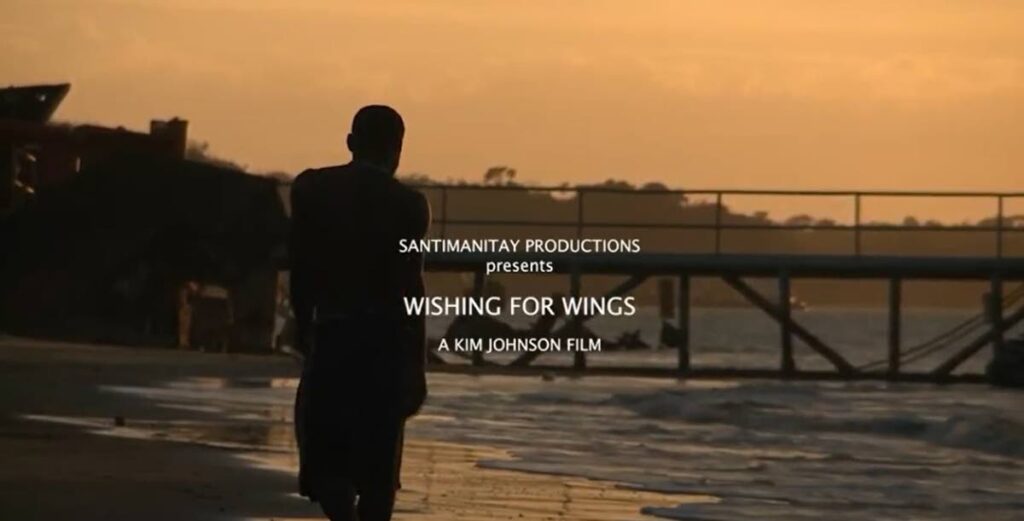Wishing for Wings documentary gives hope for prison reform programmes

After putting his newest documentary film on hold for years and expressing reluctance to show it locally, filmmaker Dr Kim Johnson, 68, will show Wishing for Wings in Trinidad and Tobago after all, for one night only.
The journalist, author, researcher and historian said the documentary was based on the memoir of the same name by writer, Newsday columnist and prison reform advocate Debbie Jacob and her experience of teaching English to male inmates at the Youth Training and Rehabilitation Centre (YTRC).
The documentary blurb reads: "A shy librarian is inveigled into teaching literature to juvenile prisoners from a world of poverty and violence, a universe away from their teacher and her syllabus. They must learn to communicate with, and learn from one another so she can prepare them for examinations. That new relationship affects the lives of both teacher and students, however, in ways they can't imagine."
Johnson told Sunday Newsday he interviewed Jacob, the young men referred to in the book, and those in charge at YTRC. It covered topics such as the violent world the young men grew up in, what it was like being at YTRC, the crimes they committed, their interactions with Jacob, and how learning English literature and English language changed them.
He said in studying English the boys had to do some introspection about themselves and their crimes, and learn to empathise with others.
“It’s about that journey, which is a difficult journey, because it’s always hard to look at yourself and realise, ‘I was a real imps.’”
He said it was also about Jacob’s journey. As a middle-class woman who had been a victim of crime, she had the preconception that all criminals were the same. But, in interacting with the boys, she had to come to terms with her attitude, see them as individuals with their own issues and learn how to communicate with them.

“These kids come from the other side of the river. They go through things middle-class people don’t realise are part of their everyday experience. They live in a different world that creates criminals.
“So it starts off with two sets of people who have no interest in one another, don’t know how to talk to one another, have no clue about the life of the other, and how, out of the interactions, they begin to understand one another and themselves.”
Johnson, the former director of the Carnival Institute of TT, said he had known Jacob for about 30 years and had worked with her years ago at the Express newspaper. He read her book when it was released in 2013 and found the story so moving and powerful that he wanted to make a film about it.
His initial idea was a fictional feature film based on the book and a short documentary to help raise money to make and market it. He did the interviews years ago, but did not think he had enough material. He also ran out of money, as people in the US film industry were reluctant to fund it, so he put the project on hold.
“Even though I got some support from fairly high-ranking actors in Hollywood, I ran into a problem, the same problem the documentary landed into: unfortunately, even though it’s a true story, in this period of history, the mood of the time is that people don’t want to hear about a white saviour. They don’t want to hear about a white woman helping black boys in prison.”
But two years ago, after retiring from the Carnival Institute in 2020, he decided to try to make a short film out of the material he had. Going through it, he found he had more than he realised, as the men were charismatic, articulate, intelligent and open.
Johnson completed the editing last year and the film premiered on August 11, 2022, at the sixth annual Festival of Cinema, NYC, where it was nominated for best documentary. He said he did not want to release the documentary at the TT Film Festival, as he did not want to embarrass the men he interviewed.
However, he decided to have a limited release, for one day only, at the International School of Port of Spain, Westmoorings, on March 10 at 6 pm.
“It’s very, very powerful. It’s very emotional. We invited some of the (government) ministers in the hopes it would allow them to see a different approach to dealing with criminals. It’s not just about locking them up and throwing away the key.
“TT has to come to terms with the fact that more laws, bigger, badder policemen, harsher sentences, is, at best, a temporary fix. We have to find out what is creating these violent, callous young men, and in a sense, Wishing for Wings is looking at that.
“Crime is a serious problem in TT that has to be dealt with, but it has to be dealt with intelligently and seriously. I’m hoping the film will make people think about what has to be done.”
Editor’s note: The headline on this story was replaced on March 6 to reflect more accurately the content of the story.

Comments
"Wishing for Wings documentary gives hope for prison reform programmes"